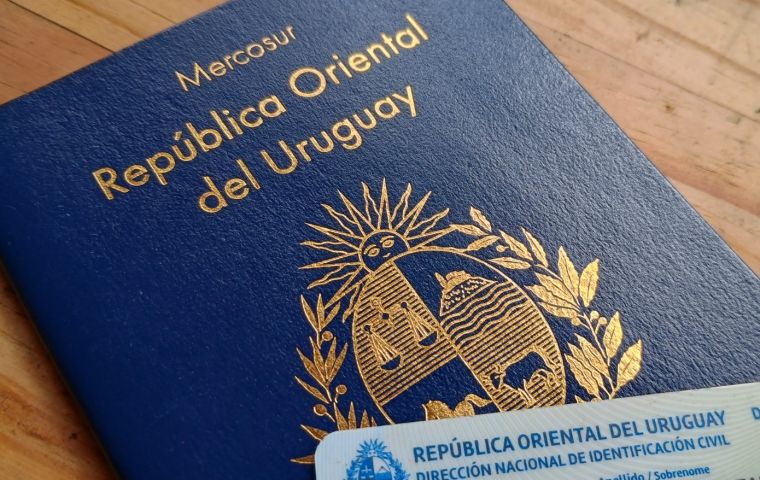MercoPress. South Atlantic News Agency
Uruguayan State summoned by Inter-American Commission over nationality treatment
 This situation has reached absurd situations such as that of legal citizens whose documents indicate that their nationality is “Soviet”, since they were born in the USSR.
This situation has reached absurd situations such as that of legal citizens whose documents indicate that their nationality is “Soviet”, since they were born in the USSR. The Inter-American Commission on Human Rights (IACHR) has summoned the Uruguayan State following concerns raised by the association Somos Todos Uruguayos regarding the treatment of Uruguayan nationality and the risk of statelessness. The hearing is scheduled for this Tuesday in Washington DC.
According to Somos Todos Uruguayos (We Are All Uruguayans), the Uruguayan authorities' lack of a naturalization policy prevents legal citizens from obtaining Uruguayan nationality, potentially rendering them stateless. The association contends that Uruguayan law equates legal citizenship with nationality but criticizes the state for failing to confer nationality through naturalization processes.
In the South American country, some 35,000 legal Uruguayan citizens see their right to free mobility affected when they travel abroad, becoming stateless under the legislation of many countries.
Alexis Ferrand, a spokesman for Somos Todos Uruguayos, emphasized the consultative nature of the hearing, stating, “We are asking for consultation on whether legal citizenship is naturalization or not.” He further highlighted cases where legal citizens risk losing their original nationality upon obtaining Uruguayan citizenship, potentially leaving them stateless.
While precise figures are unavailable, Ferrand estimated that around 20,000 adults in Uruguay are legal but not naturalized citizens. He underscored Uruguay's unique position in Latin America, where legal citizenship does not necessarily confer nationality, noting, “There are citizens who are not nationals.”
The hearing aims to address these concerns and seek clarification on Uruguay's nationality laws, shedding light on a critical issue affecting legal citizens' rights and the risk of statelessness.
Two bills stuck in Parliament
Uruguay, along with Myanmar, is the only ocuntry in the world that distinguishes differently between the terms “citizenship” and “nationality”.
In the Uruguayan Parliament, there are two bills that were introduced in the House of Representatives in recent times in order to address the problem faced by thousands of legal Uruguayan citizens when traveling outside the country, since their documents, unlike natural and national Uruguayans (children or grandchildren of Uruguayans born in the country), instead of indicating that their nationality is oriental, say that of the country where they were born.
This situation has reached absurd situations such as that of legal citizens whose documents indicate that their nationality is “Soviet”, since they were born in the extinct union of republics dissolved in 1991.
Colorado Party Congresswoman, Desiree Pagliarini, one of the co-authors of a draft bill that seeks to remedy this problem of constitutional interpretation, told MercoPress that “eventually, the constitution will have to be changed so that Uruguay can grant nationality to legal citizens and finally remove that ambiguity that generates so many misinterpretations and that generates all this fundamental problem of not knowing if legal Uruguayan citizens are or are not Uruguayan.”




Top Comments
Disclaimer & comment rulesCommenting for this story is now closed.
If you have a Facebook account, become a fan and comment on our Facebook Page!